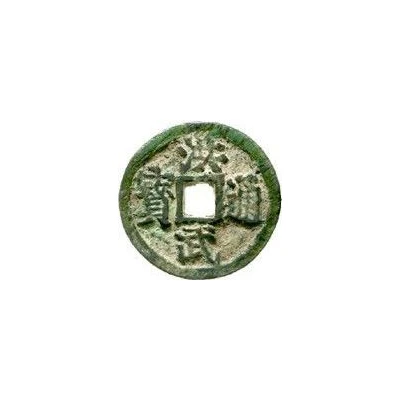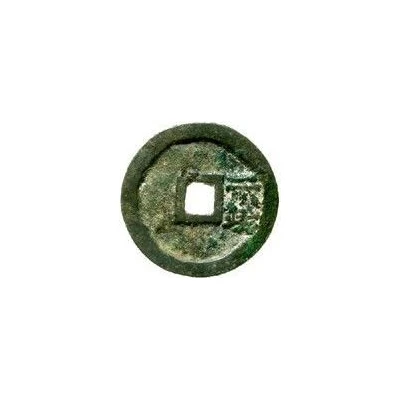


© Teutoburger Münzauktion
2 Cash - Hongwu Tongbao; with Er ND
| Bronze | - | 29 mm |
| Issuer | Empire of China |
|---|---|
| Emperor | Ming dynasty › Hongwu (明太祖) (1368-1398) |
| Type | Standard circulation coin |
| Years | 1368-1393 |
| Value | 2 Cash |
| Currency | Cash (621-1912) |
| Composition | Bronze |
| Diameter | 29 mm |
| Shape | Round with a square hole |
| Technique | Cast |
| Orientation | Medal alignment ↑↑ |
| Demonetized | Yes |
| Updated | 2024-10-04 |
| Numista | N#222074 |
|---|---|
| Rarity index | 94% |
Reverse
Two Chinese ideograms to the right.
Script: Chinese (traditional, regular script)
Lettering:
二
錢
Translation:
Er Qian
2 Qian (weight of 2 Cash)
Edge
Plain
Comment
Casting of Hongwu coins started in 1368, but was not continuous. Large coins were discontinued in 1371, with all minting being suspended from 1375 to 1376, then again from 1387 to 1389 (that time due to a copper shortage). Minting was finally stopped again in 1393 in favour of paper money.Interesting fact
One interesting fact about the Standard circulation coin 2 Cash - Hongwu (Tongbao; with Er) ND (1368-1393) from Empire of China made of Bronze is that it was used as a form of currency during the reign of Emperor Hongwu, the founder of the Ming dynasty. The coin features the inscription "Hongwu Tongbao" (洪武通寶) which means "Circulating Treasure of the Hongwu Era" and includes the Emperor's reign title "Er" (二) which means "Second". The use of bronze in the production of coins during this time was a significant change from the previous use of iron and copper coins, and it helped to stabilize the currency system in China.